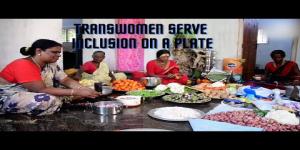Bhutan to become a high-income GNH Society by 2030
The 21st Century Economic Roadmap is still in a preliminary stage almost six months after its high-level roundtable was formed under the chairmanship of the Bhutanese prime minister on January 24

The 21st Century Economic Roadmap is still in a preliminary stage almost six months after its high-level roundtable was formed under the chairmanship of the Bhutanese prime minister on January 24. The drafting of the document is expected to be completed by October this year and launched on February 21 next year, as per the timeline revealed at the first high-level roundtable meeting.
The National Task Force on the 21st Century Economic Roadmap held a bilateral consultation with the National Assembly’s economic and finance committee on July 16.
Chairperson of the national task force, Kinga Tshering, informed the committee that the economic roadmap would involve generation of income and employment in the country.
“We have held several consultations with ministries and agencies to get their views,” he said.
The proposed goal of the economic roadmap is “High Income GNH Society by 2030”, the threshold of which is a GNI per capita of USD 12,375.
Kinga Tshering said that not only should new laws and regulations be enacted, some of the existing ones also need to be amended.
He also sought “wisdom and directives” from the committee to improve the economic roadmap.
The government has involved all stakeholders including representatives from all the political parties so that the economic roadmap becomes a national document. Prime Minister is the lone member of the economic roadmap from the government’s side.
Members of the economic and finance committee said focusing on income and employment generation alone could make the roadmap a narrow document.
One of the committee members, Passang Dorji (PhD), said that the GNH components of the economy should retain priority in the economic policy.
“The economy should ensure the three fundamental roles of equity, efficiency and sustainability,” he said.
Another committee member, Rinzin Jamtsho, said that the economic roadmap should be aimed at achieving balance of trade and food self-sufficiency among other goals to ensure national security.
He also said that there should be a balance between the economic development and GNH in the country’s pursuit for economic development.
MP Dorji Wangdi said that the economic roadmap should be an extension of the Vision 2020. “The document (Vision 2020) had set targets in almost all sectors. The only thing it lacked was the identified area of priority,” he said.
MP Kinga Penjor emphasised on ICT development and asked the task force to look into the possibilities of considering ambitious ICT programmes. He also stressed on the need to improve the public service delivery system and said that possibility of adopting a corporate model of service delivery should be looked into.
MP Choki Gyaltshen said the economic roadmap should be a long-term vision and that it should include promoting Bhutan as an educational hub. He also stressed on the need to uplift the quality of education.
“Generation of income and employment alone should not be our objective,” he said.
The task force members assured that the GNH components would be indispensable parts of the 21st-century economic roadmap.
https://kuenselonline.com/high-income-gnh-society-by-2030/
















Post a Comment